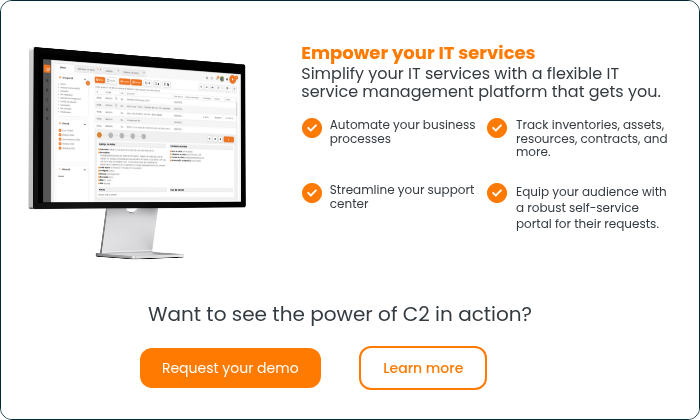To determine if you need to follow the ITIL model, you must know what it means, especially what it is. ITIL is an abbreviation for Information Technology Infrastructure Library. It’s a set of best practices for developing and executing IT services management. It’s a guide to help you increase your company support performance and the delivery of your services.
However, as your business is unique, so should your use of ITIL recommendations. Asking the right questions will help you apply the best ITIL practices for your business. There is no specific model to follow, only guidelines to help you increase your company's performance and processes.
The Benefits of the ITIL Framework
There are several advantages of using the ITIL framework, for example:
- Reducing operations costs will lead to better growth and a more agile practice, making your company more competitive.
- Improve your customer service and client satisfaction by better distributing the roles within the enterprise and putting forward your resources' skills, experience, and qualifications.
- The rationalization of IT processes will also make your business more efficient and productive and significantly increase your service quality.
The ITIL model offers several advantages, but it is important to understand that you must apply only the beneficial guidelines to your field of expertise to obtain the maximum benefits and succeed. There are no rules or any obligation to use the entire ITIL framework. It may even be disadvantageous for your company to do so; you could, however, implement ITIL best practices in phases. In the fast-evolving world of IT, what may be good for your business now may need improvement in the future , and other facets of the ITIL model may be useful to your company at that time.
The limitations of the model
Although ITIL proposes a set of optimal processes, its best practices have certain limitations:
- The ITIL solutions are not made for Project Management.
- ITIL processes are also limited in their level of methodology and implementation.
The ITIL model does not offer tools; they are only best practices to help your company's IT service management performance. Therefore, you can customize your tools to optimize your ITIL best practice choices, ultimately allowing you to implement ITIL processes successfully.
Do not forget that depending on the size of your business, some tools proposed in the best ITSM processes will be advantageous. Still, not all of the tools will necessarily be proper for the functionality of your IT department.
In conclusion, the ITIL framework is not one fit but a guideline that will allow you and your team to be structured, competitive, agile and productive.
Adapted to any organization, the ITIL benefits are numerous and very beneficial to any company; they far outweigh their limitations; make sure that you adapt them well to your daily workloads.





